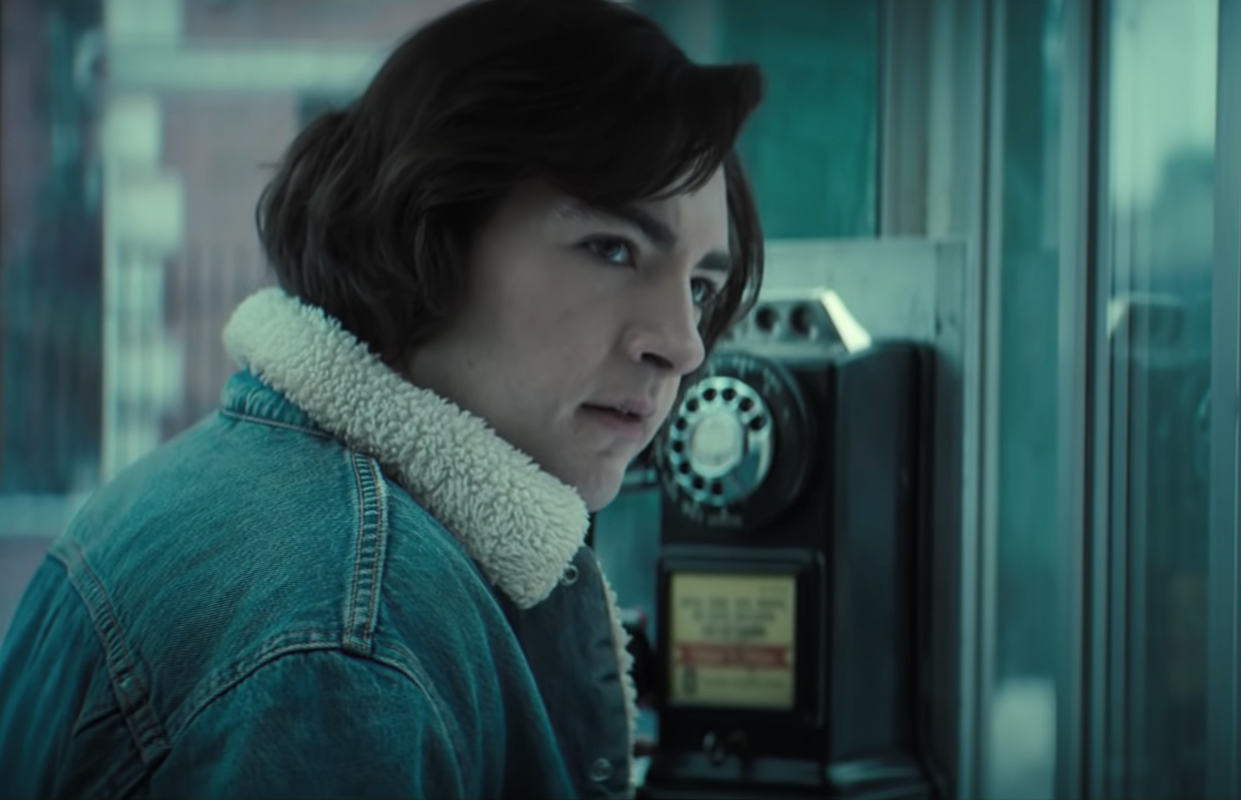Books & Culture
A Black Comedy Clicked on My Metaphorical Light
How the quirky cruelty of "Ghost World" validated and ennobled my rebellious spirit

When I first saw Ghost World on cable TV in the Philippines during my senior year of high school, I immediately recognized Thora Birch with her thick-framed glasses and jet-black bob. I remembered her character in American Beauty, and, here again, as Enid, she continued to exude the attitude of someone who had better things to do than simply be another teenager in another bland suburban town. On the curved surface of our boxy TV set, she surveyed the world with tired, impatient eyes, and I found myself watching her with an attentiveness I couldn’t quite explain. I had been spending another empty Saturday morning at home, channel surfing, before chancing on this girl, my age, fresh out of high school, who ambled down the streets of a town she knew like the back of her hand—accompanied by her friend, Rebecca—without knowing where she was headed or what she was looking for. Hadn’t I taken walks like theirs with my friend Denise, who’d invite me to cut class with her just so we could wander down the streets of Baguio, a town we both swore we detested for its smallness, even as we found ourselves succumbing to its silent lure?
In the solitude of my parents’ living room, my desire to leave the mountain city of my youth sharpened with every salty comeback Enid had for the people she was forced to put up with—her father, his girlfriend, nearly everyone else in her life. I had never encountered a character as blunt and abrasive as Enid, not in the teen movies I saw on cable TV, and certainly not in the moralizing Filipino teen movies I tended to avoid. There was a bravery to her bluntness that I myself could only summon when I was with Denise. It was Denise, more than anyone else, who brought out the sarcasm I wanted to unleash on our teachers and classmates; between us, she was the one with the sharper tongue, cutting through my inhibitions to expose a hidden, liberating meanness.
With Denise, I could stand under the hot midmorning sun, waiting for a teacher to finish another long-winded speech peppered with the usual statements about respecting our parents or trusting God, and snicker beneath the jackets we spread above our heads for shade. Whenever we had the chance, we mocked the girls in our class who wore too much makeup and tried just a little too hard to catch the attention of the boys (to whom we ourselves were invisible). I spent much of my high school life a loner, my debilitating shyness and odd literary tastes metastasizing into a silent contagion that my classmates feared catching. But when I reached my junior year, I met a quiet girl in my computer class who allowed me to sit beside her, surprising me with her offbeat quips as we tried, and repeatedly failed, to figure out a set of commands together. Denise laughed and joked at her failures, while I chuckled over my inability to be of any help. Soon, we were exchanging self-deprecating, cutting jokes as we made our way down our school’s cavernous, mid-century hallway, our delight sealing our friendship.
After that first viewing, I watched replay after replay of Ghost World on Cinemax or HBO, chuckling at Enid’s jokes that, while shocking in their cruelty, embodied the kind of revenge I wanted to take on my classmates. What would a pretty, popular girl in my class think if she overheard me cracking an STD joke as she flirted with a guy I once had the most painful crush on? It was the type of joke I wouldn’t ever dream of saying out loud, but when Enid spat it out, I felt strangely validated. I could see myself in Rebecca, too, covering my mouth in laughter while giving Enid’s arm a playful, concurring slap. And I could see Denise in Enid, muttering about how the stupidest people in our school were also the sluttiest as we walked down its dark corridors. The more I sat through the reruns, the more I found myself pulled into Enid’s orbit, unsure whether I was identifying with her, or whether it was Denise I was seeing.
It was easy for me to fall for Ghost World’s odd charm, but one particular scene completely pulled me in: In her bedroom, Enid finally decides to put on a record purchased at a yard sale from an eccentric man she’s been stalking. As the blues song “Devil Take My Woman” eases into the room like a heavy perfume, her expression softens. For once, she allows herself to become vulnerable, surrendering to the music’s mysterious undertow instead of fighting against it. It’s one of the few scenes in the movie where she falls in love with something instead of dismissing it with a mean remark, reminding me of Denise’s vulnerability whenever she talked to me about classical music. We could be mean, even to complete strangers, but art brought out the best in us: it pried us open, allowing us to shed our protective shells.
Much like Enid and Rebecca, our graduation from high school spelled the unspoken and perhaps inevitable end of my friendship with Denise. Years after our parting, I’d often wonder what she would think about the niche interests I fell into in the absence of her company. The Denise I knew in high school would have googled Buster Keaton as soon as I mentioned him, and then come over to my parents’ house to watch One Week or The General with me, listening as I praised the wittiness and grace of his physical jokes before joining me in laughter as a train smashed into a prefabricated house he had spent an entire week building. Or else we would have listened to classical records together, our knowledge of Dvorak, Debussy, and Miles Davis deepening into adulthood as we began to make enough money to buy better recordings.
But for me to imagine our friendship continuing into the present, my mind needed to latch onto the Denise I once knew—in my mind, we remained characters in a movie, an Enid and Rebecca whose stories were encased in the amber of adolescence.
In our final year of high school, Denise and I began cutting class, sometimes heading to our school library where we found books that excited us more than our lessons. Sometimes we’d take long, aimless walks around Baguio, where old tree-lined houses from the American colonial era were gradually being replaced by boxy, artless hotels and shopping malls. Like Enid and Rebecca tramping down the streets of their city in their Doc Martens without any particular destination in mind, Denise and I plodded down our sidewalks in our regulation white blouses and pleated maroon skirts, taking notice of the beautiful clapboard houses set far back from the street and the thick curtains of bougainvilleas cascading toward the sidewalk. I tagged along with Denise on these strange and desultory walks, afraid that the timber-framed homes and pocket gardens of our hometown would be gone by the time I returned from Manila, where I planned to go to college. Our youth was slipping away from us, and so was the city of our childhood, tree-covered hills and abandoned homes leveled to make way for another hotel or gas station as soon as we so much as looked away. Denise was bitter about the changes we saw; I could only listen with sadness to her rants about the utter disrespect people had for our city’s beauty. She was more attached to our hometown than I was, holding onto the memories it once possessed, while I chose to silently mourn its gradual and seemingly inescapable passing.
Looking back, it’s hard for me to say who was Enid in our friendship, and who was Rebecca. I was always drawn to Enid’s rebelliousness when confronted with the uncomfortable realities of adulthood (such as holding down a job that forces one to rein in one’s creative impulses), but a part of me was also thrown off by Enid’s self-centeredness and her tendency to put her own feelings, or else her own confusions, above everyone else. A part of me identified with Rebecca when she began to lose patience with Enid’s hedging over getting an apartment together, or finding a job that would allow her to pay for her share of the rent. My impatience with Enid, in fact, began to resemble my impatience with Denise, whose criticism of people began to sound harsh and unreasonable, especially as I started feeling the very urges that she mocked in the popular girls she called “flirts” and “sluts.” I understood why she viewed their unabashed pursuit of male attention with contempt, but did the mere desire for attention or physical contact from a boy signify that one lacked substance or intellectual depth? (I had recently discovered Anais Nin’s Little Birds in my parents’ library, though I was too afraid to confide in Denise about being simultaneously turned on and captivated by the book’s language, sensing that she’d dismiss the epiphany I experienced as I read its detailed descriptions of sex as a regression of sorts, as a sign that I lacked “self-control.”)
Did the mere desire for attention or physical contact from a boy signify that one lacked substance or intellectual depth?
Like Enid, Denise had a tendency to speak as though the frailties she saw in others weren’t also hers to grapple with. Nonetheless, it was Enid whom I found myself rooting for whenever I watched Ghost World. At the end of the movie, Enid boards a bus out of town, and I saw in her decision a readiness to confront adulthood on her own terms, which I hoped to experience by leaving my hometown to become a writer. Unlike Rebecca, whose acceptance of the realities of adulthood also causes her to unconsciously lose her deeper appreciation for the off-kilter and strange, Enid remains devoted to her weirdness, that part of herself that refuses to succumb to external pressures. There’s a nobility in her stubbornness—and though she spends much of the movie unable to decide how she wants to honor her rebellious spirit, I found her decision to start fresh somewhere new to be her most decisive move. Perhaps it was just wish fulfillment, but I interpreted Ghost World’s closing scenes—in which Enid, in a bright red dress, matching red shoes, and carrying a small suitcase, marches to the bus stop with a determined air—as freeing. In the grainy light of the nearby street lamps, I saw illuminated the dark and uncertain path Enid had chosen for herself.
Like Rebecca, Denise was the one who chose to remain in town, and I often wonder if the life she chose made her happy or fulfilled, even though our paths abruptly diverged after I left, and it isn’t for me to say what could have made her happy. Shortly before our high school graduation, I was surprised to learn that she was enrolling in a local nursing school, like most of my classmates. We were all made to believe that a better life meant moving overseas, and that the only way out of our country, where opportunities were few, was a nursing degree. When I asked her why she was going to nursing school, all she’d say was that she wanted to be a nurse, regardless of the fact that she’d be attending classes with the very people whose tastes she mocked in my company, people who lacked imagination and wouldn’t know how to appreciate, much less celebrate, her uniqueness, or so I believed.
I was one of the few people in our graduating class who chose to pursue a humanities degree, and older people who weren’t my parents or relatives questioned my choice whenever I encountered them at neighborhood parties or wakes. Why not study nursing like my son or daughter, they all asked, citing the job openings for nurses in America and the salaries that Filipino nurses could make abroad. I would talk about graduate school overseas as an alternative route to the life they proposed, not really knowing if it was what I wanted for myself, and they would simply grimace at the idea of a young person selfishly pursuing passion, instead of thinking about all the money I could make for my family.
A part of me can still picture Denise rolling her eyes at these adults and tugging at my hand, saying something insulting about a man’s body odor or the garishness of a woman’s clothes once they were out of earshot. But then again, that is the Denise I knew from high school, not the person she may have become after we parted ways. I have no way of knowing if she would’ve summoned up her wicked sense of humor in the presence of these uncomprehending adults, when she too admitted to me later that she was going to nursing school because it was what her mother wanted.
There are times when I feel that I haven’t gotten too far away from the people Denise and I poked fun at or complained about when we were younger.
The last time I heard about Denise, she was living in a small coastal town not too far from Baguio with her minister husband, whom she married shortly after graduating from college. Shortly after my father’s abrupt passing a few years ago, I returned to the town I had once been dying to leave as a teenager, only to find myself marooned in my childhood home during a pandemic that continues to wear on. There are times when I feel that I haven’t gotten too far away from the people Denise and I poked fun at or complained about when we were younger. In the land of my birth, I am asked if I am married or have children, as though the things I have already achieved, like publications or degrees, are secondary to these milestones of femininity I have not yet reached.
In the comic book rendering of Enid’s story, serialized before the movie, Enid eventually returns home. In the movie, however, there’s a finality to her departure, the darkness of the sky as her bus dips over the horizon signaling an ending to this chapter in her life, which I think signifies a bursting forth from her previous life’s limitations. Like Enid, I once felt that the only way for my world to expand was to leave the one place I considered home. But now that I have returned to the town I fled, I’ve begun asking myself if I ever allowed the small-mindedness of my surroundings to determine the size and shape of my world. In Denise’s company, at least, my world grew bigger, becoming colorful and fanged before I finally gathered the courage to step beyond the limits of our shared home. Would she agree with me from wherever she is? I’d like to ask her, invite her to my house and serve her tea while listening to Debussy.








